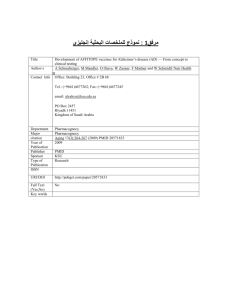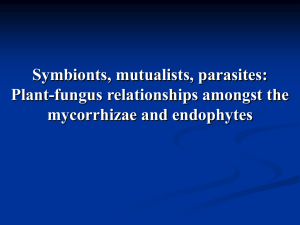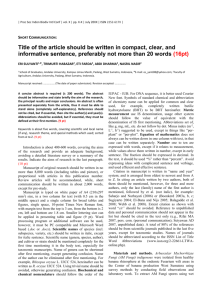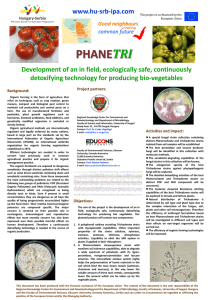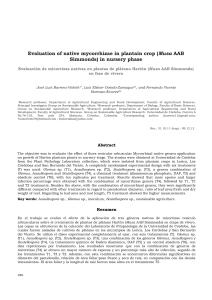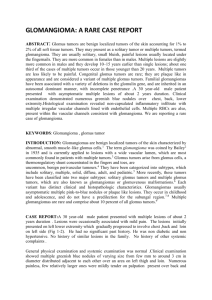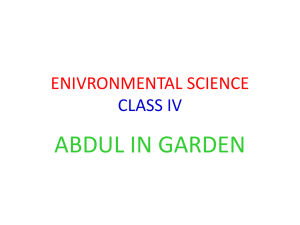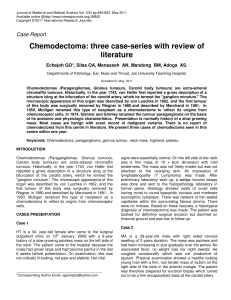Mycorrhizae VABC Conference Text Slides
advertisement
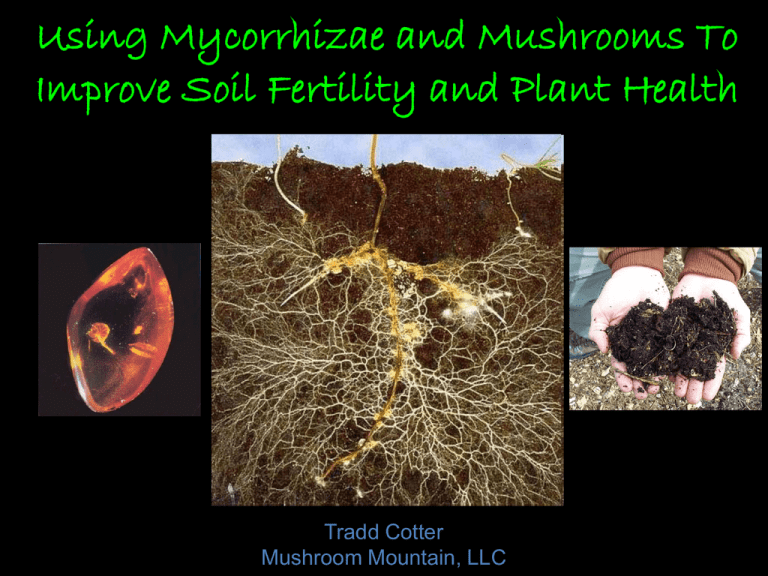
Using Mycorrhizae and Mushrooms To Improve Soil Fertility and Plant Health Tradd Cotter Mushroom Mountain, LLC http://www.botany.wisc.edu/art/images/outreach/posters%20blowups/amanita-poster.jpg SYMBIOSIS Interkingdom dependence is universal • Mycorrhiza (pl.=mycorrhizae) • defined as a symbiotic relationship between the roots of a plant and a fungus. • Includes plants that do not have roots, such as bryophytes (mosses and liverworts).. Mycorrhiza • Obligate symbionts • Symbiotic association involving mycobiont and photobiont – Mycobiont obtains carbohydrates, vitamins, and spore germination stimulated by root exudates • Up to 20% of the host’s fixed carbon can be “captured” by the fungus – Plant obtains benefits from increased mineral and nutrient uptake, increased water uptake, and protection from root pathogen • up to 80% of plant’s phosphorus needs and 25% of its nitrogen obtained via the fungus Function of Mycorrhizae • “CARBON TRADING” with plant hosts in exchange for phosphorous, nitrogen, and many other elements plants cannot absorb or fix. • Up to 30% more Nitrogen • Up to 60% more Phosphates Function of Mycorrhizae • Water transport and retention • Root Pathogen Resistance • Collaboration with other microbes (bacteria, protozoa, nematodes…) • Increases soil porosity • thick, course mycelium may extends out from roots into soil, infect other roots • sometimes bears Chlamydopsores – thick-walled, multinucleate globose spores; resting structures Spores of Glomus spp. TYPES OF MYCORRHIZAE Woody Trees and Shrubs Ectomycorrhizal fungi – 3 + fungi – Pisolithus tinctorius, Scleroderma and multiple species of Rhizopogon. Also include >5,000 mushroom species! Porcini, Truffles, Chanterelles… Annual and Perennial Veggies • Endomycorrhizal fungi – 7 fungal species – Glomus mosseae, Glomus intraradices, Glomus fasciculatum, Glomus dussii, Glomus clarum, Glomus deserticola, Glomus microaggregatum. Mycorrhizal symbiont? • Trichoderma – 6 fungal species that include Trichoderma (6 strains), Gliocladium virens (2 strains), Trichoderma harzianum (2 strains), Trichoderma viride (2 strains), – A beneficial fungus that is used to enhance mycorrhizal colonization and protect the roots. TYPES OF INOCULANTS POWDER GRANULES LIQUID TYPES OF INOCULANTS POWDER Longer shelf life compared to liquids. Can be stored for up to a year. Longer if kept sealed at 38 degrees F Used for seed inoculation or to make a solution for repeated watering applications TYPES OF INOCULANTS GRANULES Spores carried by volcanic rock or other inert particles. CAREFUL! You are buying by the pound. Used for surface inoculation root application at planting. Often contain additional fertilizers or stimulants. TYPES OF INOCULANTS LIQUID Shorter shelf life compared to powders and granules Use immediately or store at 38 degrees F Require long, static contact time with root tips for root infection to occur TIPS FOR INOCULANTS The earlier the better Inoculate seed or seedling before the root system has encountered pathogens You need more inoculant once the plant’s root system develops SAVE $$$$$$$$$ MYCOFILTRATION biological contaminants E.coli O157:H7– Fecal coliform bacteria commonly causing serious illness when ingested. Common in all regions of the world. philosophyofscienceportal.blogspot.com http://ciencianet.com.ar/files/images/chagas.post.jpg Trypanosoma cruzi - Protozoan parasite known to cause “Chaga’s Disease” primarily in tropical South American countries. Over 10 million affected. 10,000 people die every year (WHO, 2008). MYCOFILTRATION Test # 3 PRIOR RESEARCH Reduced fecal coliforms 100 to 1 in as little as 24 hours using mycological filters. Can be used to create composting for manures, human waste KING STROPHARIA Stropharia rugoso-annulata http://www.comesatradehub.com/images/products/8039972186.jp WWW.MUSHROOMMOUNTAIN.COM/handout

